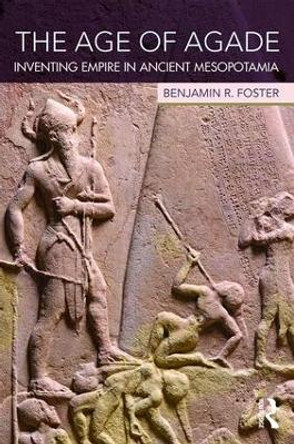Description
About the Author
Benjamin R. Foster is the Laffan Professor of Assyriology and Babylonian Literature and curator of the Babylonian Collection at Yale University. Karen Polinger Foster is a lecturer in ancient Near Eastern and Aegean art at Yale.
Reviews
Winner of the 2010 Felicia A. Holton Book Award, Archaeological Institute of America "Benjamin Foster and Karen Polinger Foster, both at Yale University, have written an excellent overview of the history and cultures of ancient Iraq beginning with the earliest references to Sumer and ending with the Arab defeat of the Sassanians in 637 CE... The text is clear, well written and a pleasure to read. It should be highly recommended to anyone, student and layman alike, as an introduction to the history of ancient Iraq. Perhaps most importantly the book seems to have been designed for an audience that wishes to know more about ancient Iraq as a consequence of recent and current events... This book is for bookshops, on the high street and at airports, as well as for students and for scholars for whom ancient Iraq or contemporary attitudes to the civilization of ancient Iraq might be tangential."--Geoffrey D. Summers, Bryn Mawr Classical Review "It's an undeniable benefit to have Civilizations of Ancient Iraq (note the plural), ... [a] crystal-clear and well-illustrated narrative ranging from the earliest villages (c. 8000 BCE) to the Arab conquest of 637 CE... This is a most rewarding book with fine illustrations and a challenging bibliography."--Peter Skinner, ForeWord Magazine "A very readable overview of the importance of Iraq in its own terms and in the larger context of the forces that have shaped modern civilisation. Here are chapters on the creation of the first cities ever constructed, of the first examples of writing, of the great King Hammurabi of Babylon and humanity's first poetic utterance in the Epic of Gilgamesh. Here is a story of great scientific achievement, of the powerful Assyrian Empire, of the Hanging Gardens of Babylon, of Sennacherib and his transformation of Nineveh into a city of aqueducts, canals, dams and, most impressively, of the invention of the device now known as the Archimedes screw. It is a story of an ancient and extraordinary civilisation that in recent times has been buried under acts of brutality and violence."--Bruce Elder, Sydney Morning Herald "[A] superb one-volume overview."--Nicholas Basbanes, FineBooksMagazine.com "[I]t can be extremely useful to have a single account of Mesopotamia's history reduced to its salient points, in order to provide a focused framework onto which the more complex details of history and culture can be placed. Civilizations of Ancient Iraq achieves this with ease, and emerges with a huge amount of appeal for a diverse audience."--Elizabeth Wheat and Erika D. Johnson, Rosetta "The narrative is ingeniously constructed, covering broad sweeps of history in a few lines, then settling on a person or issue of interest in more depth. The reader is not overwhelmed with the mass of details and names that could have been included, but instead is drawn into some telling particulars that hint at the complexity of the whole."--Amanda H. Podany, Journal of the American Oriental Society "[This] is an excellent survey of a civilization that is unfamiliar to most general readers, and a lament for all that is being forever lost through looting and destruction. One hopes the book will make an impression not just on those interested in ancient history but also on policy makers who have authority over sites and museums in Iraq and over preventing the trade in smuggled objects from the ancient sites."--Amanda H. Podany, Journal of the American Oriental Society "It is certainly to be hoped that this book opens the eyes of readers in the West, who may have had little awareness of Mesopotamia's great contributions to human civilization, of just what a legacy Iraq is trying to safeguard, and just how costly the events of the past ten years have been to the heritage shared by us all."--D.T. Potts, Ancient West and East
Awards
Winner of Archaeological Institute of America Felicia A. Holton Book Award 2010.
Book Information
ISBN 9780691149974
Author Benjamin R. Foster
Format Paperback
Page Count 312
Imprint Princeton University Press
Publisher Princeton University Press
Weight(grams) 312g





